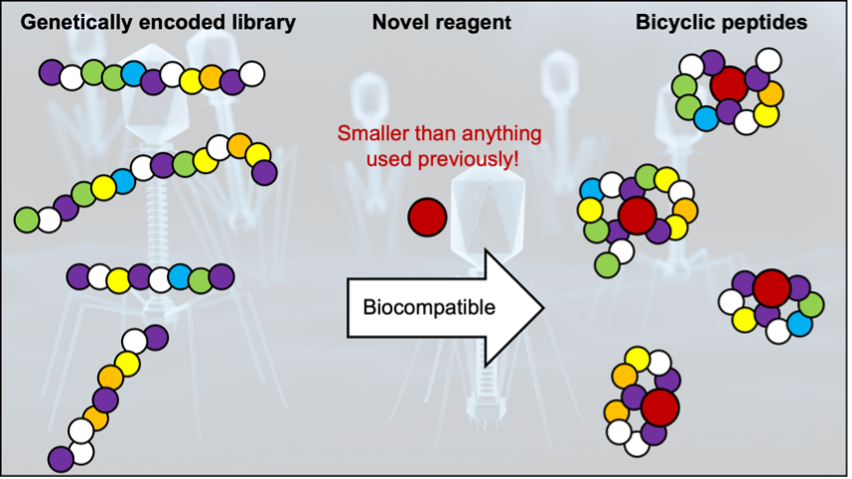Genetically encoded bicyclic peptides
This project will explore phage display (Nobel prize 2018) as the most robust approach and establish this technique at the Research School of Chemistry.
Groups
Research themes
Project status
Content navigation
About
Bicyclic peptides are fascinating next-generation therapeutics with great prospects in oncology and beyond. However, chemical approaches to selectively generate bicycles are limited. We have developed novel approaches how linear peptides can be transformed into bicycles under biocompatible conditions. In order to unleash the full potential of this new chemistry for drug discovery campaigns, this project will advance the concept to the next level by exploring its compatibility with genetically encoded peptide libraries. Display techniques link peptides to the genetic information encoding them, allowing for the screening of vast libraries. This project will explore phage display (Nobel prize 2018) as the most robust approach and establish this technique at the Research School of Chemistry.

